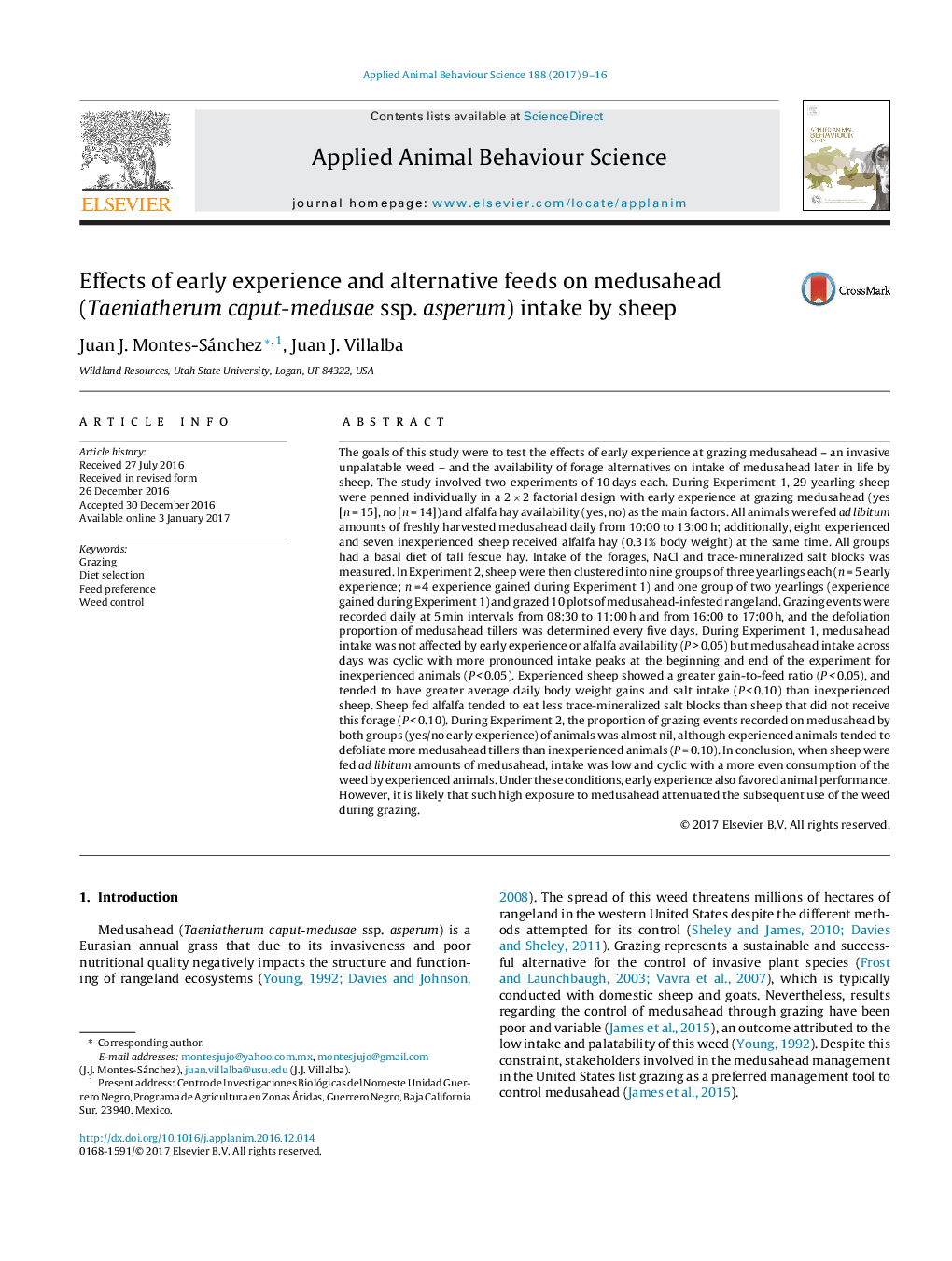| Article ID | Journal | Published Year | Pages | File Type |
|---|---|---|---|---|
| 5763333 | Applied Animal Behaviour Science | 2017 | 8 Pages |
Abstract
The goals of this study were to test the effects of early experience at grazing medusahead - an invasive unpalatable weed - and the availability of forage alternatives on intake of medusahead later in life by sheep. The study involved two experiments of 10âdays each. During Experiment 1, 29 yearling sheep were penned individually in a 2 Ã 2 factorial design with early experience at grazing medusahead (yes [n = 15], no [n = 14]) and alfalfa hay availability (yes, no) as the main factors. All animals were fed ad libitum amounts of freshly harvested medusahead daily from 10:00 to 13:00 h; additionally, eight experienced and seven inexperienced sheep received alfalfa hay (0.31% body weight) at the same time. All groups had a basal diet of tall fescue hay. Intake of the forages, NaCl and trace-mineralized salt blocks was measured. In Experiment 2, sheep were then clustered into nine groups of three yearlings each (n = 5 early experience; n = 4 experience gained during Experiment 1) and one group of two yearlings (experience gained during Experiment 1) and grazed 10 plots of medusahead-infested rangeland. Grazing events were recorded daily at 5 min intervals from 08:30 to 11:00 h and from 16:00 to 17:00 h, and the defoliation proportion of medusahead tillers was determined every five days. During Experiment 1, medusahead intake was not affected by early experience or alfalfa availability (P > 0.05) but medusahead intake across days was cyclic with more pronounced intake peaks at the beginning and end of the experiment for inexperienced animals (P < 0.05). Experienced sheep showed a greater gain-to-feed ratio (P < 0.05), and tended to have greater average daily body weight gains and salt intake (P < 0.10) than inexperienced sheep. Sheep fed alfalfa tended to eat less trace-mineralized salt blocks than sheep that did not receive this forage (P < 0.10). During Experiment 2, the proportion of grazing events recorded on medusahead by both groups (yes/no early experience) of animals was almost nil, although experienced animals tended to defoliate more medusahead tillers than inexperienced animals (P = 0.10). In conclusion, when sheep were fed ad libitum amounts of medusahead, intake was low and cyclic with a more even consumption of the weed by experienced animals. Under these conditions, early experience also favored animal performance. However, it is likely that such high exposure to medusahead attenuated the subsequent use of the weed during grazing.
Related Topics
Life Sciences
Agricultural and Biological Sciences
Animal Science and Zoology
Authors
Juan J. Montes-Sánchez, Juan J. Villalba,
